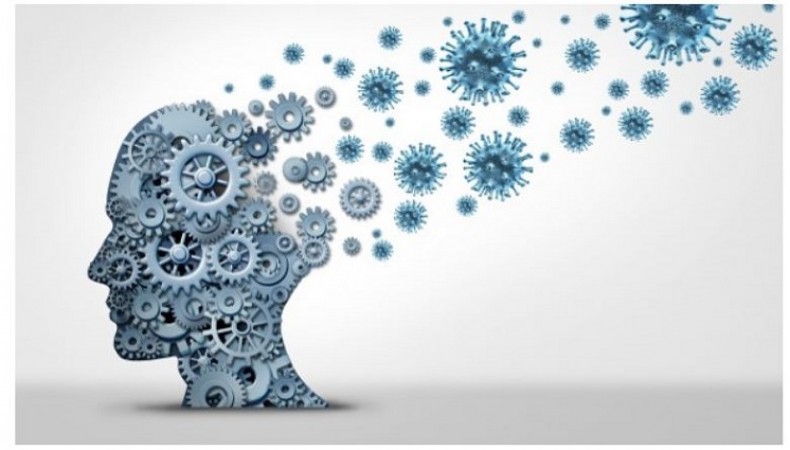
Mental health, a vital component of our overall well-being, often takes a backseat in our discussions about health. However, it is a crucial aspect of our lives, as it influences the way we feel, think, and act. Mental disorders encompass a wide range of psychological conditions that can significantly impact an individual's cognitive skills, behavior, and functional life. Conditions such as depression, anxiety disorders, schizophrenia, and bipolar disorder, among others, fall under this umbrella. In this article, we will delve into the world of mental health, exploring the causes, consequences, and the importance of addressing these issues to lead healthier, more fulfilling lives.
Understanding Mental Disorders
Mental disorders are complex conditions that affect millions of people worldwide, irrespective of age, gender, or socio-economic status. They can manifest in various forms, making it essential to recognize the common ones and their characteristics.
Depression: Depression is a pervasive mental disorder characterized by persistent feelings of sadness, hopelessness, and a lack of interest or pleasure in daily activities. It can lead to changes in appetite, sleep patterns, and concentration, making even the simplest tasks seem insurmountable.
Anxiety Disorders: Anxiety disorders encompass conditions such as generalized anxiety disorder (GAD), panic disorder, social anxiety disorder, and specific phobias. Individuals with anxiety disorders often experience excessive worry, fear, and physical symptoms like increased heart rate and sweating.
Schizophrenia: Schizophrenia is a severe mental illness marked by distorted thinking, hallucinations, delusions, and impaired emotional responses. People with schizophrenia may struggle to distinguish between reality and their inner world.
Bipolar Disorder: Bipolar disorder involves extreme mood swings, alternating between periods of mania (elevated mood) and depression (low mood). These mood shifts can disrupt daily life and relationships.
Causes of Mental Disorders
Mental disorders do not have a single, identifiable cause. Instead, they often result from a complex interplay of various factors, including:
Life Situations: Stressful life events, such as the loss of a loved one, financial troubles, or traumatic experiences, can trigger or exacerbate mental disorders.
Brain Damage: Brain injuries, infections, or tumors can affect the brain's functioning and lead to mental health issues.
Neurological Disorders: Conditions like Alzheimer's disease, epilepsy, and Parkinson's disease can impact cognitive and emotional well-being.
Genetic Predisposition: A family history of mental illness can increase an individual's susceptibility to developing a mental disorder.
Environmental Toxins: Exposure to environmental toxins or substance abuse can contribute to the onset or progression of mental disorders.
Health Challenges Associated with Mental Disorders
Mental disorders not only affect one's mental and emotional well-being but also have far-reaching consequences on physical health and daily life. Some of the most common health challenges associated with mental disorders include:
Cardiac Ailments: Research has established a strong connection between mental health and heart health. The chronic stress associated with mental disorders can contribute to the development of cardiovascular diseases.
Weak Immune System: Prolonged stress and anxiety can weaken the immune system, making individuals more susceptible to infections and illnesses.
Social Isolation: Many individuals with mental disorders experience social isolation due to the stigma attached to these conditions. This isolation can exacerbate their symptoms and lead to feelings of loneliness and despair.
Loss of Work: Mental disorders often interfere with an individual's ability to work and maintain employment. The loss of a job can further contribute to financial stress and feelings of worthlessness.
Self-Abortive Activities: Some individuals may turn to self-destructive behaviors, such as substance abuse or self-harm, as a way of coping with their mental distress.
Addressing Mental Health
Given the prevalence and severity of mental disorders, it is imperative to address mental health in a holistic and compassionate manner. Here are some key steps in this process:
Raise Awareness: Reducing the stigma associated with mental disorders is a crucial first step. Education and open conversations can help dispel misconceptions and promote empathy.
Seek Professional Help: If you or someone you know is experiencing symptoms of a mental disorder, seek professional help. Mental health professionals, such as psychologists, psychiatrists, and counselors, can provide effective treatments and therapies.
Support Networks: Building a strong support network of friends and family can provide emotional support and reduce feelings of isolation.
Self-Care: Encourage self-care practices such as regular exercise, a balanced diet, adequate sleep, and stress management techniques like mindfulness and meditation.
Medication and Therapy: In many cases, a combination of medication and therapy can effectively manage and treat mental disorders. It is essential to work closely with healthcare professionals to determine the most suitable treatment plan.
Prevention: Identifying and addressing mental health issues early can prevent them from worsening over time. Regular check-ups with mental health professionals can aid in early detection and intervention.
Mental health is a vital aspect of our overall well-being, impacting our thoughts, emotions, and behaviors. Mental disorders, ranging from depression and anxiety disorders to schizophrenia and bipolar disorder, can affect anyone and are caused by a combination of factors. These conditions not only have profound effects on mental and emotional health but also lead to physical health challenges and disruptions in daily life.
Addressing mental health issues requires a multifaceted approach that includes raising awareness, seeking professional help, building a support network, practicing self-care, and utilizing effective treatments. By acknowledging the importance of mental health and providing support and resources for those in need, we can create a more compassionate and inclusive society where individuals can thrive, irrespective of their mental health challenges.